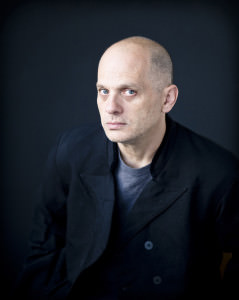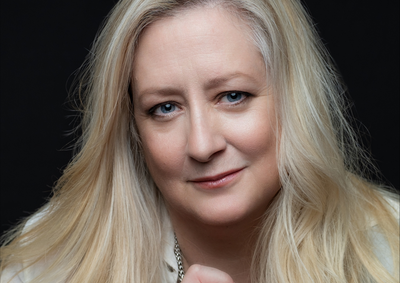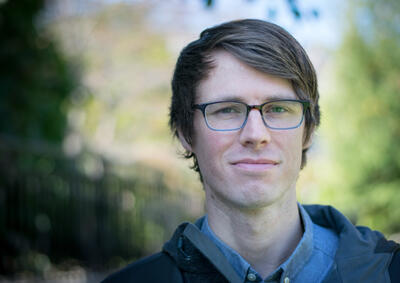Composer David Lang explores a secular transcendence in “Little Match Girl Passion”
The Classical Review
By Wynne Delacoma

In the classical music world, compositions titled “Passion” usually have a very specific focus—the story of Jesus Christ’s crucifixion and death.
American composer David Lang reveres many of those retellings, especially J. S. Bach’s St. Matthew Passion. But he takes a different tack in his Little Match Girl Passion, which the Ravinia Festival will present August 26 in the Martin Theatre.
Composed in 2007, the piece is not about Jesus, but the heroine of a beloved Hans Christian Andersen children’s story. In Andersen’s fable, a little girl, abused by her father and dreaming of a happy reunion with her loving, dead grandmother, freezes to death while trying to earn money selling matches on New Year’s Eve.
Written for four a cappella singers, the Little Match Girl Passion had its world premiere in Carnegie Hall’s intimate Zankel Hall in 2007 and won the Pulitzer Prize the following year. Woven into a luminous, ever-moving tapestry, its vocal lines evoke a fragile world full of soaring hope and ominous shadows. Critic Tim Page has described the piece as “a pristine and immaculately distilled setting…deeply felt without ever delving into sentimentality, absolutely simple yet leaving nothing out.”
Carnegie Hall co-commissioned Little Match Girl in 2006 for performance by Paul Hillier and his Theatre of Voices. When Lang started thinking about the commission, he didn’t realize he would end up creating a new approach to an ancient story.
“One of the things that I always try to do is listen to all the recordings of people I’m working with,’’ said Lang in a recent phone interview from New York City where he makes his home. “I want to know what they do, what they’re good at, what they love. I want to know where they’ve been.”
Lang was certainly familiar with Hillier, whom he calls “an amazing singer, an amazing musician, one of the legends of the vocal music world.” He knew Hillier mainly from his work with a vast range of contemporary composers including John Cage, Arvo Part, Karlheinz Stockhausen and Luciano Berio.
“But when I went through his repertoire,” said Lang. “I noticed he has 50 or 60 CDs he’s recorded of music from Western history about Jesus.”
This raised an interesting challenge for the composer. As a “fairly religious” Jew, Lang has always felt somewhat distanced from music overtly inspired by Christianity.
“That’s where classical music came from,” he said. “That’s where my world comes from. The pope and the Catholic Church were our first employers. If you’re interested in singing and vocal music, you end up—just because you have a nice voice—being an advocate for Christianity. That’s where all the great repertoire is.”
Lang appreciates Christianity’s huge influence of the development of Western music. He recognizes that Bach’s liturgical music is moving, in part, because it so clearly expresses the composer’s deep faith. But a disconnect remains.
”For many people like me,” said Lang, “who are not Christians but who have really deep classical music roots, we often come to these moments. . .There’s a limit to how deeply into this world we can go, because we don’t believe in Jesus. It’s a weird kind of no man’s land for people like me.”
With the Little Match Girl Passion, Lang decided to face that no man’s land head on. Bach’s St. Matthew Passion was his starting point.
“I decided to take on the notion,” said Lang, “that there’s something in the Bach St. Matthew Passion–which is one of the greatest pieces ever written and which I love–that can be taken out as universal. Something so that people who don’t believe in Jesus might actually get something out of it.”
As Lang studied the Passion, it dawned on him that the story’s universal aspect might be embedded in its choruses. Bach’s chorus functions as both witness and commentator, interjecting their thoughts as the story unfolds. Lang was especially interested in their reactions as they watched Jesus suffer.
“It was the idea of challenging yourself to be a better person because you’ve noticed this other person’s suffering,” said Lang. “What would it be like to tell the passion story, but take Jesus’ suffering out and put some other person’s suffering in? Would that make the story universal? Would it trivialize the whole thing? I didn’t know. It was an experiment for me”…





